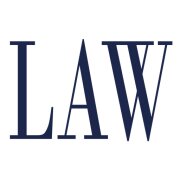Best Employment Rights Lawyers in Botswana
Share your needs with us, get contacted by law firms.
Free. Takes 2 min.
Or refine your search by selecting a city:
List of the best lawyers in Botswana
About Employment Rights Law in Botswana
Employment Rights law in Botswana is designed to protect the relationship between employers and employees, establishing a framework for fair treatment, equitable remuneration, and safe working conditions. Governed primarily by the Employment Act, these laws are intended to regulate employment contracts, working hours, leave entitlements, occupational safety, and the mechanisms for dispute resolution, among others. Employment rights in Botswana strive to balance the needs of the workforce with the economic and operational needs of employers, ensuring an equitable and sustainable working environment.
Why You May Need a Lawyer
There are several situations where individuals may find it beneficial to seek legal help regarding employment rights in Botswana. Common scenarios include:
- Disputes over employment contracts: Issues may arise concerning the terms of employment, such as salary, job description, or termination conditions.
- Unfair dismissal claims: When an employee feels they have been terminated without just cause or due process, legal guidance may be necessary.
- Workplace discrimination or harassment: Employees facing any form of discrimination or harassment may seek legal advice to address and resolve these issues.
- Non-payment of wages or benefits: Legal intervention may be required when employers fail to pay agreed wages or benefits.
- Working conditions: Legal guidance can help address issues related to unsafe or unhealthy working environments.
Local Laws Overview
The key aspects of local laws in Botswana that pertain to employment rights include:
- Employment Act: This is the primary legislation governing employment practices, covering aspects like contract terms, termination, leave, and working hours.
- Trade Disputes Act: This law provides mechanisms for resolving industrial disputes, including mediation and arbitration.
- Workers Compensation Act: It ensures that employees are compensated for injuries sustained in the course of employment.
- Occupational Health and Safety Act: Sets out regulations to ensure workplace safety and protect employees' health.
Frequently Asked Questions
What is the minimum wage in Botswana?
The minimum wage in Botswana is periodically reviewed by the government. It differs across various sectors and is established to ensure a basic standard of living for workers.
How much notice is required for terminating an employment contract?
The Employment Act stipulates notice periods which vary depending on the duration of employment. Typically, the notice period ranges from one week to one month.
What types of leave are employees entitled to?
Employees in Botswana are entitled to various types of leave, including annual leave, sick leave, maternity leave, and compassionate leave, as outlined in the Employment Act.
Can I be dismissed without reason?
No, dismissals must be substantiated with valid reasons as per the Employment Act. Unfair dismissal can be challenged legally.
What should I do if I face discrimination at work?
If you encounter discrimination or harassment in the workplace, you should report it to your HR department. Legal counsel can assist if the issue persists or is not adequately addressed.
Am I entitled to overtime pay?
Yes, the Employment Act provides for overtime pay at a rate higher than the regular hourly wage for work exceeding normal working hours.
How does the Workers Compensation Act protect me?
This Act ensures that employees injured in the course of employment receive compensation for medical expenses and loss of earnings due to the injury.
What recourse do I have if my employer doesn't pay my salary?
In such cases, you can seek legal advice to address the non-payment. The Employment Act provides mechanisms for employees to claim unpaid wages.
How are employment disputes resolved in Botswana?
Disputes can be resolved through various means including mediation, arbitration, or by approaching the Industrial Court for a legal resolution.
Can a fixed-term contract be renewed automatically?
No, a fixed-term contract does not automatically renew. Renewal must be agreed upon by both parties under the terms stated in the employment agreement.
Additional Resources
For those seeking more information or needing assistance with employment rights, the following resources and bodies can be valuable:
- Ministry of Labour and Home Affairs: Offers information and support related to employment rights and labor laws.
- Botswana Federation of Trade Unions (BFTU): Provides advocacy and support for workers' rights.
- Botswana Confederation of Commerce, Industry and Manpower (BOCCIM): Offers resources for businesses and employer guidance.
- Industrial Court of Botswana: A judicial body that handles labor-related disputes and grievances.
Next Steps
If you believe you need legal assistance regarding employment rights in Botswana, consider the following steps:
- Consult with an Employment Lawyer: Seek out a legal expert specializing in employment law for personalized advice and representation.
- Gather Relevant Documentation: Compile any employment contracts, communication records, and evidence related to your case.
- File a Complaint: If necessary, file a formal complaint with the Ministry of Labour or the relevant dispute resolution body.
- Consider Mediation: Engage in mediation processes, which can be a quicker and less adversarial way to resolve disputes.
By understanding your rights and taking the proper steps, you can effectively navigate and resolve employment-related challenges in Botswana.
Lawzana helps you find the best lawyers and law firms in Botswana through a curated and pre-screened list of qualified legal professionals. Our platform offers rankings and detailed profiles of attorneys and law firms, allowing you to compare based on practice areas, including Employment Rights, experience, and client feedback.
Each profile includes a description of the firm's areas of practice, client reviews, team members and partners, year of establishment, spoken languages, office locations, contact information, social media presence, and any published articles or resources. Most firms on our platform speak English and are experienced in both local and international legal matters.
Get a quote from top-rated law firms in Botswana — quickly, securely, and without unnecessary hassle.
Disclaimer:
The information provided on this page is for general informational purposes only and does not constitute legal advice. While we strive to ensure the accuracy and relevance of the content, legal information may change over time, and interpretations of the law can vary. You should always consult with a qualified legal professional for advice specific to your situation.
We disclaim all liability for actions taken or not taken based on the content of this page. If you believe any information is incorrect or outdated, please contact us, and we will review and update it where appropriate.
Browse employment rights law firms by city in Botswana
Refine your search by selecting a city.
















